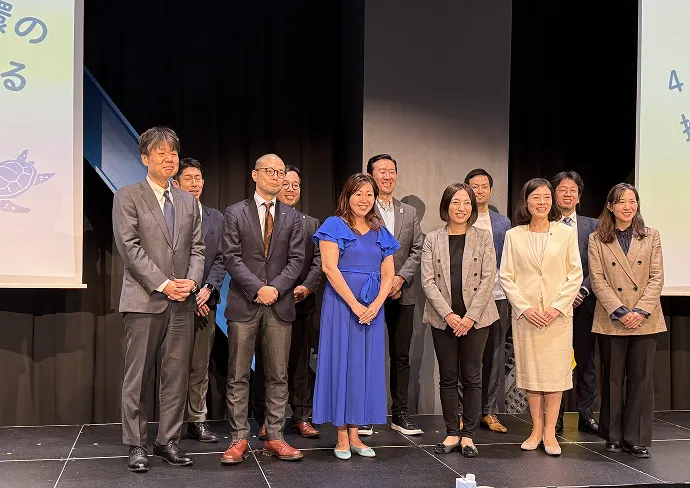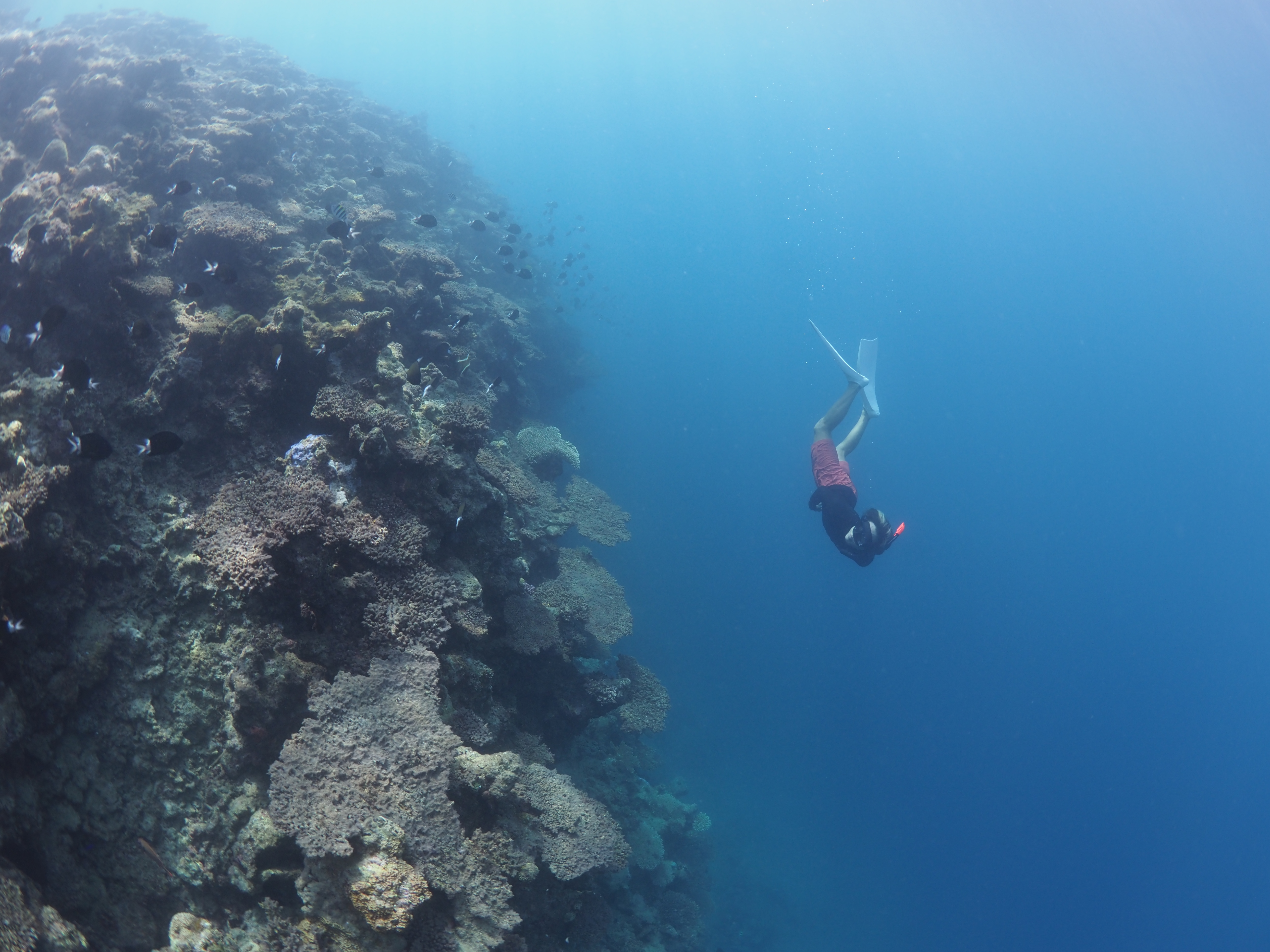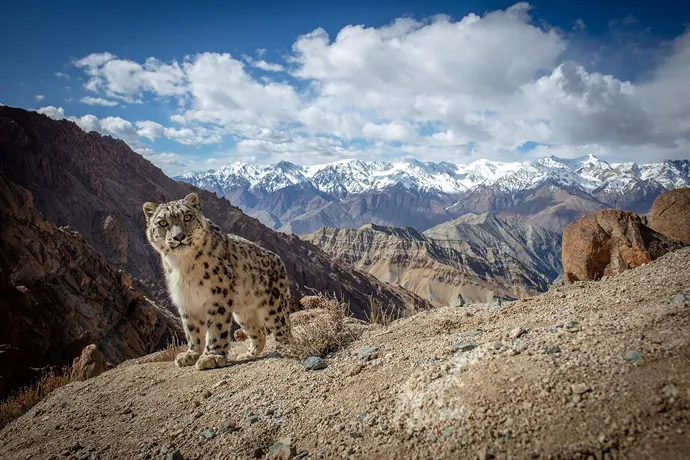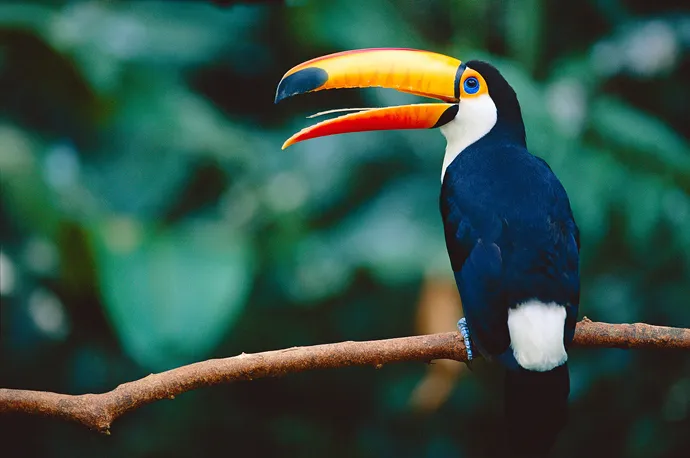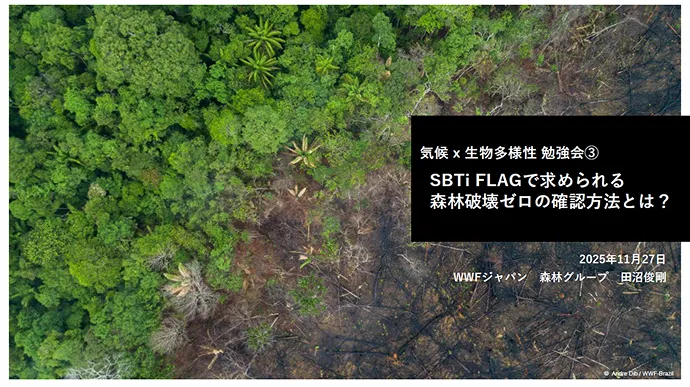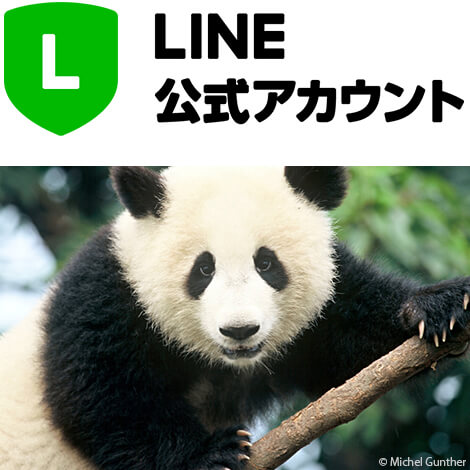APP社の「森林保護方針」、保全効果は期待できず
2013/04/17
1984年、インドネシア、スマトラ島での操業開始以来、約30年にわたり周辺の熱帯林から木材を調達し続けてきた製紙メーカーAPP社。今や日本を含め、世界中に製品を供給する世界的製紙メーカーとなった同社のために、貴重な熱帯林が消失し、また地域社会でも、土地の権利をめぐって争いが生じています。長い間、こうした問題が指摘され続けてきた中、2013年2月、同社は、今回で4度目となる自然林伐採を停止する方針を発表。同社による熱帯林破壊についに終止符が打たれるのか、その方針の価値が注目されていました。しかし今回、WWFも協力する現地NGOの分析により、同社の新たな方針によって保護される自然林は、ほとんど存在しないことが明らかになりました。
約30年にわたる操業と、繰り返された「宣言」

トラやゾウ、オランウータンなど今や絶滅の危機に瀕する希少な野生生物が今も生息するインドネシアのスマトラ島。
1984年、豊かな熱帯林の覆われていたこの島で、最初の製紙工場の操業を開始し、原料となる木材を周辺の森林に依存してきた、シナル・マス・グループのアジア・パルプ・アンド・ペーパー社(以下、APP社)は、その関連会社と共に、これまでに約200万ヘクタールにおよぶ熱帯林 を、製紙原料用植林地に変えてきました。
貴重な熱帯林を大規模に伐採することにより、生物多様性豊かな森林の価値が著しく損なわれることはもちろん、その植林地の確保のあり方や、土地の利用権をめぐっては、地域に暮らす人々との争いも生じており、環境面だけでなく、社会面での課題も指摘されてきました。
そのため、WWFをはじめ多くの環境団体からは、同社に改善を促し、自然林破壊を助長しないためにも、同社とのいかなるビジネスも、極めて慎重であるべきとの主張を続けてきました。
その一方でAPP社は、こうした批判、そして市場からの不買宣言などの反応に対し、さまざまな社会貢献や野生生物保護、そして持続可能性に関する宣言を繰り返してきました。
とりわけ、最も問題視されている原料調達に関しては、当初2004年までに自然の熱帯林からの木材の使用をやめ、全量を植林木にすると宣言しました。
しかし、その目標は2007年に延期され、その後さらに2009年にまでとし、2011年には2015年まで、とさらにその期限を延ばし、結局は貴重な自然林の伐採によって得られる原料への依存が続いてきました。
繰り返される「宣言」と、なかなか改善に向かわないこの問題に、不信感や対立が強まるなか、2013年2月、APP社は2013年2月1日以降の自然林の伐採を直ちに停止し、またそれ以降に伐採された自然林原料の受け入れも行わないこと盛り込んだ「森林保護方針」を発表しました。
熱帯林破壊による植林地拡大計画、ついに完了?

しかし、WWFも協力している、スマトラ現地で森林減少・違法伐採などを監視するNGOの連合体、アイズ・オン・ザ・フォレストの分析によって、その「森林保護方針」は、極めて残念なものであること明らかになりました。
最も注目すべき事実の一つは、主に操業が行なわれているスマトラ島中部のリアウ州においては、APP社は、可能な限りの熱帯林の、植林地への転換をほぼ完了させた上で、森林伐採の停止を宣言したようである、ということです。
つまり、この新たな方針によって、保護されることになる自然林はほぼ無いということです。
しかし、今回もAPP社によって公表されている伐採許可地や原料供給に関する情報は、その全容が明らかになっているわけではありません。
WWFは、同社に対し、失われた森林の回復を求めるとともに、既存および今後取得を計画している原料調達地および、工場の拡大など、すべての操業計画を明らかにするよう求めます。
また、市場に対しても、今回の方針をもって、同社を責任ある企業と認めることはできないと主張します。
関連情報
記者発表資料 2013年3月3日
日本語仮訳:APP社の森林保全誓約 保全効果はほぼ無く、森林回復の約束もなし
【ジャカルタ発】2013年2月、様々な議論を呼んでいる製紙メーカー、シナル・マス・グループのアジア・パルプ・アンド・ペーパー社(以下、APP社)が、新たな森林破壊に関する方針 を発表し、盛んに宣伝活動が行われている。しかし、主に操業が行われているインドネシアのスマトラ島では、この方針によって守られることになる森林はほぼ無いということがNGOの連合体、アイズ・オン・ザ・フォレストによる新たな報告書によって明らかになった。
シナル・マス・グループおよびAPP社は、その方針を「インドネシアの全サプライチェーンにおける自然林皆伐の終止であり、直ちに実施する」として2月に発表した。しかしながら、スマトラ島リアウ州では、今回発表された伐採の一時停止の対象とならない伐採許可地も含め、 APP社の伐採許可地の全てに関して、アイズ・オン・ザ・フォレストが実施した新たな分析によると、同社の方針によって守られる自然林は、多くても約5,000ヘクタールしかないことが分かった。それに引き替え、同社のスマトラ島のパルプ工場操業のために過去約30年以上にわたって200万ヘクタールを越える森林が破壊されている。
WWFインドネシアのコンサベーション・ディレクター、ナジル・フォアドは、「極めて落胆している。この方針が発表されたとき、インドネシアの森林、生物多様性、そして人々にとって素晴らしい知らせだと思った。ところが、スマトラに関する新たな分析によれば、APP社は、可能な限りの森林破壊をほぼ完了させた上で、森林破壊停止を宣言したようだ」と述べた。
APP社の自然林に由来する木材原料の多くは、スマトラ島中部に位置するリアウ州の木材供給者の伐採許可地から調達される。これらの伐採許可地だけで、1984年に同社がリアウ州で工場の操業を開始して以来、2012年までに68万ヘクタール以上の自然林が失われた。このうち、77%は法的に問題のある形 で失われ、また一方で、83%は、絶滅が危惧されるスマトラトラとスマトラゾウの生息地であった。
WWFは、APP社およびシナル・マス・グループに、失われた森林の回復を約束するよう求める。
WWFインドネシアで、森林環境に配慮した木材を積極的に扱う企業グループ(GFTN)と紙パルプ・マネジャーのアディタヤ・バユナンダは、「APP社は、私たちの国インドネシアに、生態系の破壊や社会紛争、現在も続く温室効果ガス排出、生息地を失った絶滅危惧の動物たち、という問題を残したまま、それらを『忘れ去るべき過去』とするよう恩赦を求めているが、これを受け入れることはできない。インドネシアのNGOは、一部の泥炭地と法的に保護されているはずの地域、そして「保護価値の高い」地域に森林を回復させること、そして、これまでの操業が与えた自然林、泥炭地、そして野生生物への負の影響を緩和させることを求めている」と述べた。
アイズ・オン・ザ・フォレストは、APP社により宣伝されている「保護価値の高さ」の調査は、計画されていた森林の皆伐が完了し、残された森林が既に法律もしくは同社によるこれまでの誓約で保護されている伐採許可地で行われるという点も強調している。
アイズ・オン・ザ・フォレストは、APP社により宣伝されている「保護価値の高さ」の調査は、計画されていた森林の皆伐が完了し、残された森林が既に法律もしくは同社によるこれまでの誓約で保護されている伐採許可地で行われるという点も強調している。
APP社は、かつて2004年までに植林木のみによる原料調達を行うと約束したが、これを守らず、2007年、2009年とその期限を引き延ばしては、自然林からの原料調達を続けてきた。今回のアイズ・オン・ザ・フォレストの報告書は、これら3度の誓約にも関わらず、インドネシア警察がAPP社の原材料供給社を含めた製紙業界による違法伐採に関する捜査を行っていた2007年から2009年までの短期間以外、1995年から2011年までの間、同社の森林破壊のスピードは、一定の速さを保っていたことを明かしている。2012年、このスピードは遅くなったが、これは単に伐採できる自然林がほぼなくなったからである。
「私たちの分析により、一つの結論が導き出された。またしてもAPP社は、人々をだまし、方針が大きな保全利益を生むと想像させ、過去の罪が見過ごされるよう期待しているようだ。私たちには、この方針の潜在的な保全効果は、APP社の森林破壊の遺産である、多くの未解決のままの問題と比較して、全くつり合うものではないと考える」とNGOワルヒリアウのハリアンシャ・ウスマンは述べる。
アイズ・オン・ザ・フォレストは、既存の、もしくは今後、入手を計画している木材供給地及び、全ての工場拡大計画を含め、APP社のすべての操業に関する情報を明らかにして初めて、今回の方針が何らかの保全的意味を持つのか否かを証明することができると強調する。
3月下旬、ボルネオ島のインドネシア領、カリマンタンのNGOが、APP社の2つの木材供給会社の伐採許可地で、熱帯林の伐採が継続し、2月の森林破壊の一時停止宣言に違反している可能性があることを明らかにした。
WWFにとって、APP社の工場が、2013年2月1日の伐採の一時停止の宣言より前に伐採されたと主張される自然林原料を受け入れ、パルプにし続ける可能性があることは重大な問題であると考える。 WWFインドネシアは、方針に反する新たな森林破壊による原料が供給会社によって工場に運び込まれる可能性があるため、この「抜け穴」を塞ぐよう求める。WWFは、2月1日以前に皆伐された木材を運搬するための期間を約3か月として、 5月5日を期限に工場が自然林木材の受け入れを終了するよう提案する。
WWFは、紙購入企業に対して、APP社との取引を性急に行わないことを勧める。APP社は、過去の操業が生んだ負の影響を償い、森林の皆伐に関与する木材が工場に供給される可能性を完全に払拭することができなければ、責任ある生産者とは認められない」とWWFインターナショナルの森林プラグラム・ディレクターのロッド・テイラーは述べる。
アイズ・オン・ザ・フォレストは、グーグルアースの地図情報サービスを用いたオンライン地図に、報告書の分析を公表した。これによりステークホルダーは、APP社の新たな森林方針を異なる視点から評価し、その実行を監視することができる。アイズ・オン・ザ・フォレストは、リアウ州以外の他の州に関する情報を 定期的に更新し、既存の伐採許可地に関する詳細情報を利用可能にする予定だ。
原文:Not much protected and no commitment to restoration in APP forest promises
Jakarta, Indonesia ; The much-touted new deforestation policy of controversial paper giant Asia Pulp & Paper (APP) will save almost no forests in its main base of operations, Sumatra, Indonesia, a new report by NGO coalition Eyes on the Forest has concluded.
APP and Sinar Mas announced the policy in February as "an end to the clearing of natural forest across its entire supply chain in Indonesia, with immediate effect." However, a new Eyes on the Forest (EoF) analysis that looks at all APP concessions - including those not covered by the moratorium - in Riau Province, Sumatra, found that the policy protects at most 5,000 hectares of natural forest. This compares to the deforestation of more than 2 million hectares caused by the operation of APP's Sumatra pulp mills over the past three decades.
"We're extremely disappointed. When APP published the policy, we thought it could be great news for Indonesia's forests, biodiversity and citizens," said Nazir Foead, Conservation Director of WWF-Indonesia. "However, after this new analysis for Sumatra, it appears that the company has announced a halt to deforestation only after completing nearly all the deforestation it could possible do."
Among APP's many natural forest wood sources are the concessions of its suppliers in Riau Province. They alone lost more than 680,000 hectares of natural forest between the start of the company's Riau pulp mill in 1984 and 2012. Of that, 77% was lost in legally questionable ways, while an even larger proportion - 83% - consumed the habitat of critically endangered Sumatran tigers and elephants.
WWF called on APP and Sinar Mas to announce a forest restoration commitment.
"The company is asking for a grand amnesty, for the 'past to be forgotten', leaving our country to deal with devastated ecosystems, social conflicts, on-going greenhouse gas emissions and critically endangered species who lost their habitat," says Aditya Bayunanda, GFTN and pulp & paper manager of WWF Indonesia. "That is not acceptable, Indonesian NGOs are calling on APP to restore selected peatlands and forests lost in protected, High Conservation Value areas and to mitigate the damage its operations caused to surrounding natural forests, peat soils, and wildlife."
Eyes on the Forest also highlights that SMG/APP's much advertised High Conservation Value assessments are to be conducted in concessions where planned clearing is complete and the remaining forests are already protected by law or APP's previous commitments.
"Without a restoration commitment, these assessments have little meaning," adds Bayunanda.
The report also shows that, despite previous company promises to exclusively pulp plantation fiber by 2004, 2007 and 2009, the company's rate of deforestation remained constant between 1995 and 2011, apart from a short period in 2007-2009 when authorities were investigating alleged illegal logging by the industry, including APP wood suppliers. The rate slowed in 2012 - for the sole reason that there was very little natural forest left to cut.
"Our analysis points to one conclusion: APP once again seems to hope that it can fool people into imagining huge conservation benefits while overlooking past transgressions," said Hariansyah Usman of WALHI Riau. "We don't see the policy's potential future conservation benefits balancing in any way the many unresolved issues stemming from APP's deforestation legacy."
"Eyes on the Forest highlights that only full disclosure of all activities, including the status of all existing and planned wood supply bases and all mill expansion plans can prove whether this policy contains any real conservation benefits."
Last week, NGOs in Kalimantan, on the Indonesian side of Borneo, found continued logging of tropical forest taking place in the concessions of two APP wood suppliers, who are supposed to be bound by the February deforestation moratorium.
A serious red flag to WWF is the fact that APP's mills continue to accept and pulp natural forest timber, under the claim that it was felled before the moratorium started on 1 February 2013. WWF-Indonesia calls on APP to close this loophole since it could be used by suppliers to feed wood into the mills from new deforestation, in violation of the policy. WWF has proposed a May 5 deadline to end their mills' acceptance of natural forest timber, allowing the company over 3 months to transport stockpiles of wood cleared before February.
"WWF recommends that paper buyers do not rush into doing business with APP", says Rod Taylor, Director of Forests at WWF International. "APP cannot be regarded as a responsible producer without redressing the harm caused by its past operations and removing any doubt that wood linked to forest clearing can enter its mills."
EoF published analyses of the report on its interactive online map, based on Google Earth's Maps Engine platform, allowing stakeholders to evaluate some of the aspects of APP's new forest policy and monitor its implementation. EoF will update its database regularly as information from other provinces and new details about existing concessions becomes available.
Notes for editors:
1.The report is published at: http://www.eyesontheforest.or.id
2.The analysis data is published as interactive maps on the Eyes on the Forest-Google Earth online Sumatra database at: http://maps.eyeontheforest.or.id
3.The analysis found that 89% of natural forests remaining last year in SMG/APP suppliers' concessions in Riau were protected by law and additional 8% by the company's own previous commitments, thus leaving at most 5,000 hectares of natural forest receiving new protection under the policy.
4.Initial response of WWF-Indonesia to the announcement of APP's policy on 5 February was published at: http://bit.ly/12b1cjL
5.On 18 March, Greenomics published a report to show that APP's forest clearance moratorium was announced after their suppliers in Sumatra completed their planned deforestation: http://bit.ly/12b1QxN.
6.On 26 March, NGOs in Kalimantan published a report that APP's suppliers continued logging and peat canal development activities after the company's imposed moratorium: http://bit.ly/12b1HKX
For further information please contact:
Aditya Bayunanda, WWF-Indonesia. +62 8182 65588, abayunanda@wwf.or.id
Diah R. Sulistiowati, WWF-Indonesia, +628111004396, dsulistiowati@wwf.or.id
Chris Chaplin, WWF-International. +86 13911747472, cchaplin@wwf.sg



